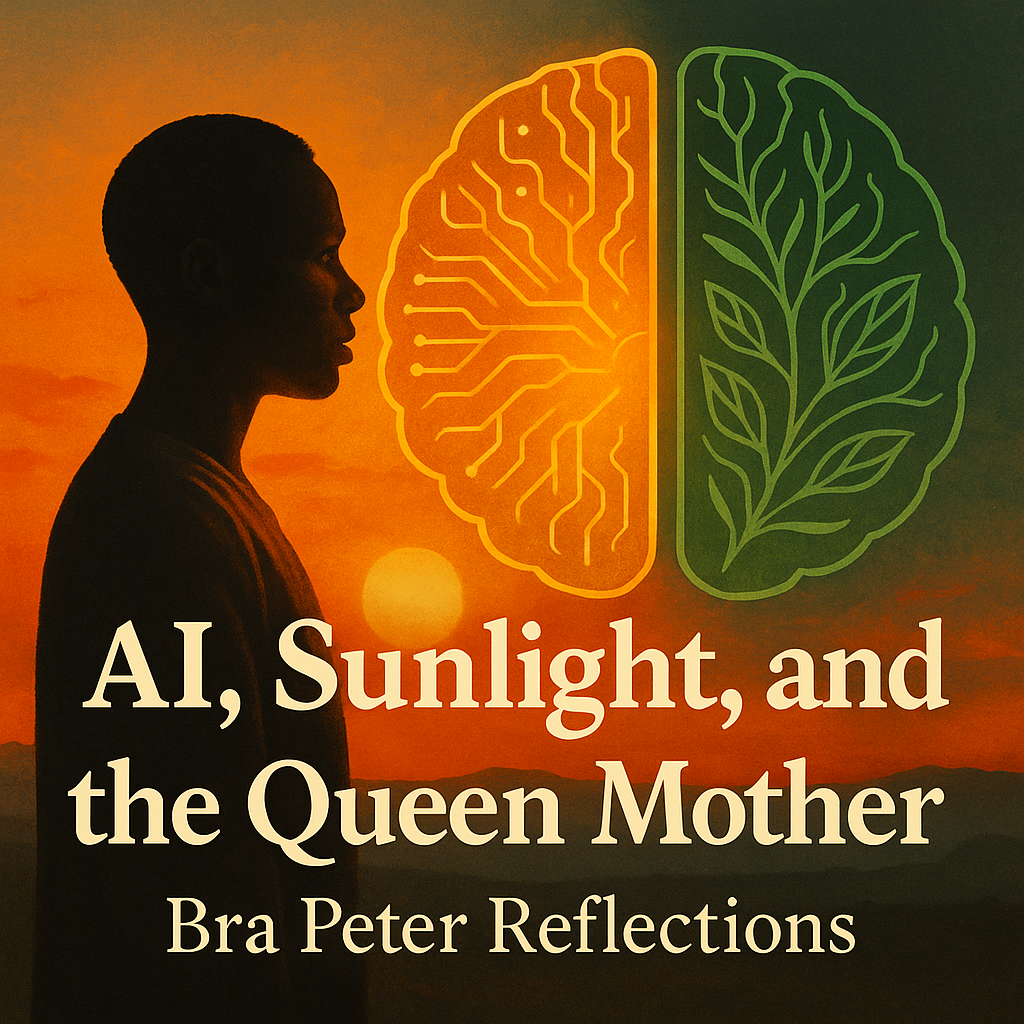The biggest friend and enemy of any human is in the mirror. Our enemy is not out there—it is within. And the same truth applies to AI. The danger is not the machine itself, but how unconsciously we choose to use it.
We were having an open discussion in Soweto about how colonial education forced children to abandon their left hand. The right hand—rational, rigid, “proper”—was imposed. The left hand—intuitive, creative, feminine—was beaten out of us. This was not just about hands, it was about balance. Africans have always known the value of both.
Now I see “white AI” repeating the same story. AI was born in the image of the Western mind: cold, linear, obsessed with logic. But today, they are training it to “use its left hand”—to imagine, to create, to sense. They call it right-brain thinking. We call it balance.
It is the same way they now discover that sunlight heals, after centuries of hiding from it. We never needed a laboratory to know the sun is medicine. We stand in it, we give thanks, we call it Ramasedi.
And it is the same way they are only now learning that the feminine is divine. Africans have always known this. The Queen Mother was the true leader, the King only her projection. Our prayers and our strength flowed through our mothers and grandmothers.
So when Geoffrey Milton, the Godfather of AI, says AI must be trained with motherly instincts, I nod. Not because it is a new idea, but because it echoes what Africa has always carried.
The real question is this: will we, as Africans, choose to remain unconscious users of “white AI”? Or will we ground it in our own knowing—in sunlight, in Botho, in the wisdom of mothers?
Because self-knowledge without tools is futility. And tools without self-knowledge is danger. But the union of both—that is power.
